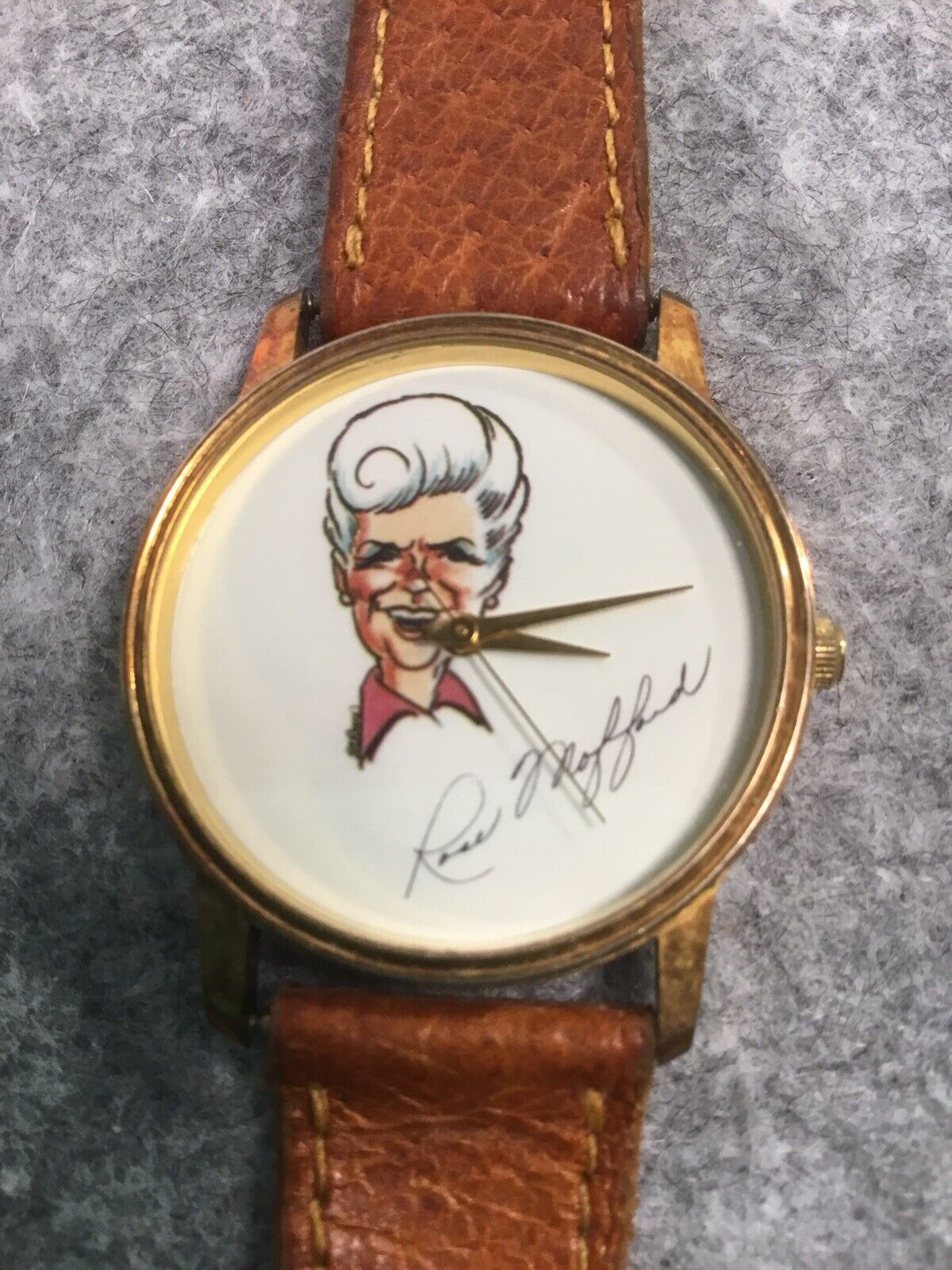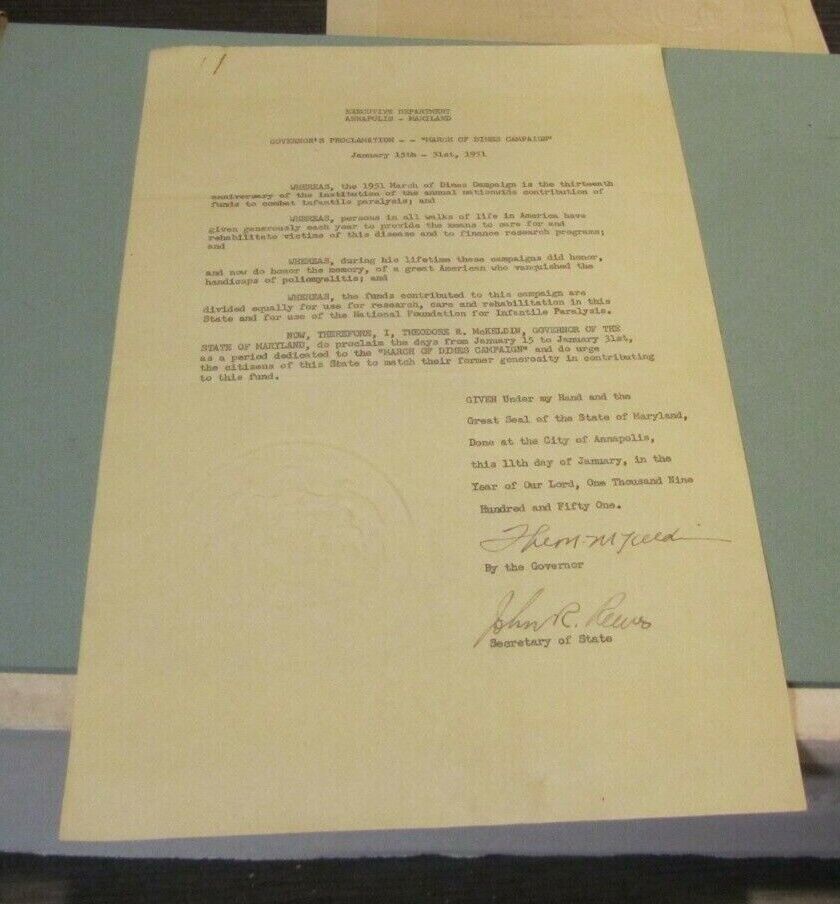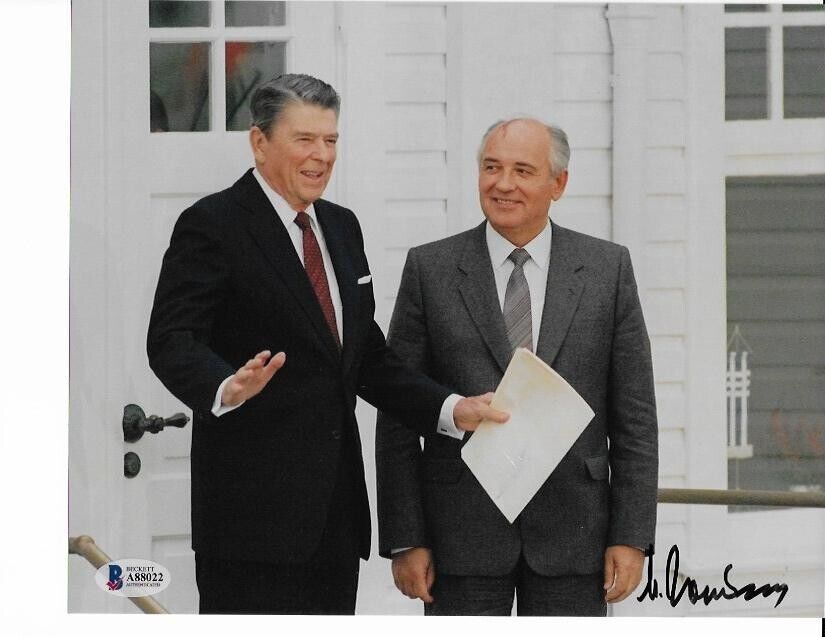-40%
"83rd Connecticut Governor” Ella Grasso Hand Signed Postcard Dated 1980
$ 15.83
- Description
- Size Guide
Description
Up for auction the"83rd Connecticut Gov" Ella Grasso Hand Signed Postcard Dated 1980.
ES-3993
Ella Tambussi Grasso
(May 10, 1919 – February 5, 1981) was an American politician and member of the
Democratic Party
who served as the 83rd
Governor of Connecticut
from January 8, 1975, to December 31, 1980, after rejecting past offers of candidacies for Senate and Governor. She was the first woman elected to this office and the first woman to be elected governor of a U.S. state without having been the spouse or widow of a former governor. She resigned as governor due to her battle with
ovarian cancer
. Grasso started in politics as a member of the
League of Women Voters
and Democratic speechwriter. She was first elected to the
Connecticut House of Representatives
in 1952 and later became the first female Floor Leader in 1955. She was then elected as
Secretary of State of Connecticut
in 1958 and served until 1971. Grasso went on to serve two terms in the
United States House of Representatives
from 1970 to 1974. Ella Rosa Giovianna Oliva Tambussi was born in
Windsor Locks, Connecticut
, to
Italian
immigrant parents Maria Oliva and James Giacomo Tambussi, a mill worker. Ella Tambussi learned to speak fluent Italian from her parents.
She attended
Chaffee School
in Windsor. Although she excelled at Chaffee and was named most likely to become mayor in the school year book, Tambussi claimed she often felt out of place as someone from a poor mill town. She went on to study sociology and economics at
Mount Holyoke College
, in
South Hadley, Massachusetts
,
[4]
where she earned her B.A. in 1940. Two years later, she earned a master's degree, also from Mount Holyoke.
Grasso married Thomas Grasso, a school principal, in 1942, and later had had two children, Susanne and James. During Grasso's tenure in the United States House of Representatives, her family remained in Connecticut while Grasso commuted home from
Washington, D.C.
, on weekends. Thomas Grasso retired when Ella Grosso became governor.
After graduation, she served as a researcher for the War Manpower Commission in
Washington, D.C.
, rising to the position of assistant director of research before leaving the Commission in 1946. She married Thomas Grasso in 1942, and together they owned a movie theater in
Old Lyme
. In the summers, the pair would operate the theater, with Ella Grasso selling tickets at the box office. In 1973 a gubernatorial poll was conducted by the
AFL–CIO
showing Grasso defeating incumbent Governor Meskill with 46% to 39% and a campaign committee was later organized although Grasso hadn't announced her intention to run yet
On January 8, 1974 she announced that she would run for the
governorship
and filed with the secretary of state. In order to win the gubernatorial endorsement, a candidate would need to receive the support of 607 out of 1,213 delegates to the state convention with multiple primaries being held beforehand to select the delegates. She participated in a difficult primary against Attorney General
Robert Killian
who received the support of multiple party leaders, but after narrowly winning the seventy delegates of Hartford by two thousand votes she effectively secured the nomination with her pledged delegates. Democratic Party leader John Bailey preferred Killian as the party nominee and hoping to avoid a primary that would negatively effect the Democratic nominee's chance in the general election Bailey convinced Killian to drop out in exchange for the lieutenant gubernatorial nomination. By the time of the gubernatorial endorsement balloting all of her opponents had dropped out except for
Norwalk
Mayor
Frank Zullo
who dropped out during the convention and as she was the only candidate to receive at least twenty percent of the delegate votes to appear on the primary ballot no primary was held. On July 20, 1974 she was given the Democratic nomination by the delegates with
acclamation
. Her opponent was Republican Representative
Robert Steele
who she defeated by 200,000 votes. Grasso became the first woman to be elected governor without being the wife or widow of a previous governor.
Upon taking office, Connecticut had an million budget deficit so Grasso promised fiscal responsibility. In 1975 she laid off 505 state employees, decreased her promise of giving million to cities with
federal revenue sharing
money to million, returned to the state treasury a ,000 raise she was legally required to take and sold the state's limo and plane.
During the 1976 presidential election she supported Senator
Henry M. Jackson
in the
primaries
and was presented as a possible
vice presidential nominee
for the Democratic Party with the
Young Democrats of Connecticut
attempting to convince her to present herself as a possible vice presidential candidate although municipal leaders angry over the decreased federal revenue sharing funds promised to prevent her nomination and she stated that she was not interested. She later served as co-chair of the
national convention
.
Following
John Moran Bailey
's death there was no longer somebody strong enough to prevent a primary challenge between Grasso and Lieutenant Governor
Robert K. Killian
. In December 1978 Killian announced his gubernatorial campaign, but after defeating his primary challenger by Grasso was re-elected in
1978
with little difficulty against Representative
Ronald A. Sarasin
. A high point of her career was her decisive handling of a particularly devastating snowstorm in February 1978. Known as "Winter Storm Larry" and now known as "
The Blizzard of 78
" this storm dropped around 30 inches of snow across the state, crippling highways and making virtually all roads impassable. She "Closed the State" by proclamation, forbade all use of public roads by businesses and citizens, and closed all businesses, effectively closing all citizens in their homes. This relieved the rescue and cleanup authorities from the need to help the mounting number of stuck cars and instead allowed clean-up and emergency services for shut-ins to proceed. The crisis ended on the third day, and she received accolades from all state sectors for her leadership and strength.
In March 1980, she was diagnosed with
ovarian cancer
and resigned from the governorship on December 31. Shortly before her resignation the mayor and city council of
Torrington, Connecticut
signed a proclamation thanking her for her service as governor, secretary of state, and representative.










